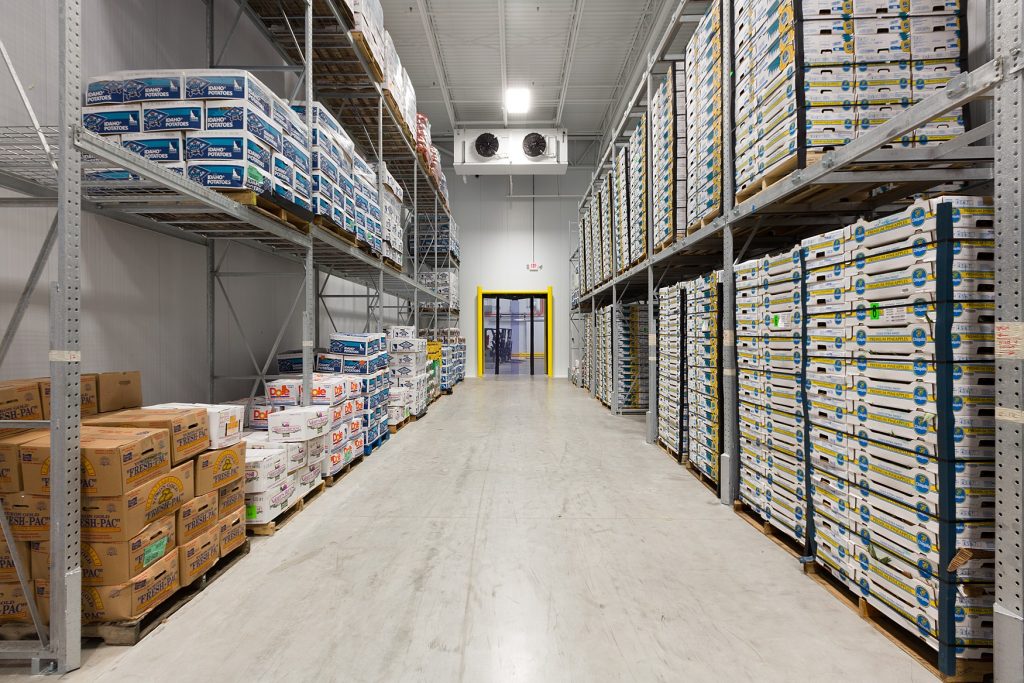Efficiency and Quality: The Benefits of Proper Cold Storage Maintenance
Cold storage warehouses require frequent maintenance to ensure that refrigeration devices and other equipment operating properly. If not, temperatures can fluctuate and take place all over the warehouse.
Using sensors that monitor temperature within food storage facilities can be a fantastic method to avoid these inconsistent temperatures. Moreover, this technology can assist in monitoring Food safety and food safety regulations across multiple locations.
Ensuring Quality of Perishable Goods
Cold storage warehouses provide conditions that protect food items from spoilage and deterioration. These facilities use refrigeration systems that allow them to reach and keep specific temperatures that are suitable for different groups of foods. The food items that could be hazardous include (PHF) which include raw or varietal meats, poultry as well as dairy products, such as fish and salads prepared, as well as vegetables as well as fruits.
They can also be affected by bacteria, which cause food poisoning when eaten. It is essential to keep food items at the correct temperatures to stop them from being absorbed into the ‘danger zone’, where microorganisms could expand to a sufficient extent to trigger poisoning or infect.

Making sure food is kept at a proper temperature will also reduce food waste. Good cold storage reduces the speed of degradation and allows restaurants to keep food items for longer and save cost in the long-term. This is crucial for companies that experience high levels of food-related sales. It can also help them transfer these savings to clients by cutting prices.
Importance of Cold Storage
The kho cap dong cong nghiep is a crucial stage in the food supply chain. Without it, the perishable items are likely to degrade rapidly or even become saturated with dangerous bacteria before getting to their destination.
Cold chain logistics is essential for businesses that work with temperature-sensitive goods, such as companies in the food and pharmaceutical industries. It ensures that all aspects of product handling preparation, storage and preservation are done at exactly the right temperature in order to ensure security and quality throughout all stages of the distribution chain.
Warehouses equipped with refrigerated storage could serve as a way to preserve food before being shipped to restaurants, grocery stores or health food stores delicatessens and other retail outlets. These can be home freezers, entire blast freezers or cold rooms dependent on the kind of food being served and the consumer’s preference. Some food retailers also have cold storage units to store food items that need long-term preservation for example, candles and similar objects. It is due to the fact that these products can be damaged with heat, which is why they must be kept at temperatures that are cooler for long periods of time.
Temperature Control in Cold Storage
Controlling temperature is an essential part of cold storage operations. This is essential to preserve food’s quality while also meeting the requirements of food safety regulations.
As an example, storing food at the correct refrigerator temperatures slows down any biological process that could cause food degradation. Additionally, it minimizes the risk of harmful bacteria, such as Salmonella and E coli, to grow in your food.
Many different products require chill storage to improve the shelf-life of their products and to prevent the growth of bacteria. The billions of dollars worth of farm products, meats and dairy products as well as consumer packaged items (CPG) are stored within a temperature-controlled environment.
Pharma companies too make use of cold storage warehouses in order to store injections and syrups and safeguard them against denaturation and deficiency. Afficient refrigeration systems as well as insulation materials help maximize efficiency in energy and lower operational costs while maintaining the products at the right temperature.
Food Safety Regulations for Cold Storage
Food safety is a crucial issue for every restaurant or food-related business. Particularly for food items that are refrigerated, and can quickly get contaminated with dangerous contaminants if they’re kept in a poor manner. Using the right techniques to store food in the freezer or refrigerator can help keep the spread of germs that can make people sick and can help businesses save cash by not wasting food in disposal.
To ensure proper storage to ensure proper storage, the temperature in the walk-in fridge or freezer is to be regularly monitored. Keep food items that need refrigeration (like the meat in its raw form) apart from foods that can be eaten to ensure that meat juices are not contaminated. juices. Keep food tightly wrapped to minimize loss of odor, condensation and drying out.
Sensors in coolers or freezers can alert that the temperature is beyond safe storage temperatures which can help reduce contamination of food items and ensure customer health. The use of this technology is quickly becoming the core element of any modern food safety system.